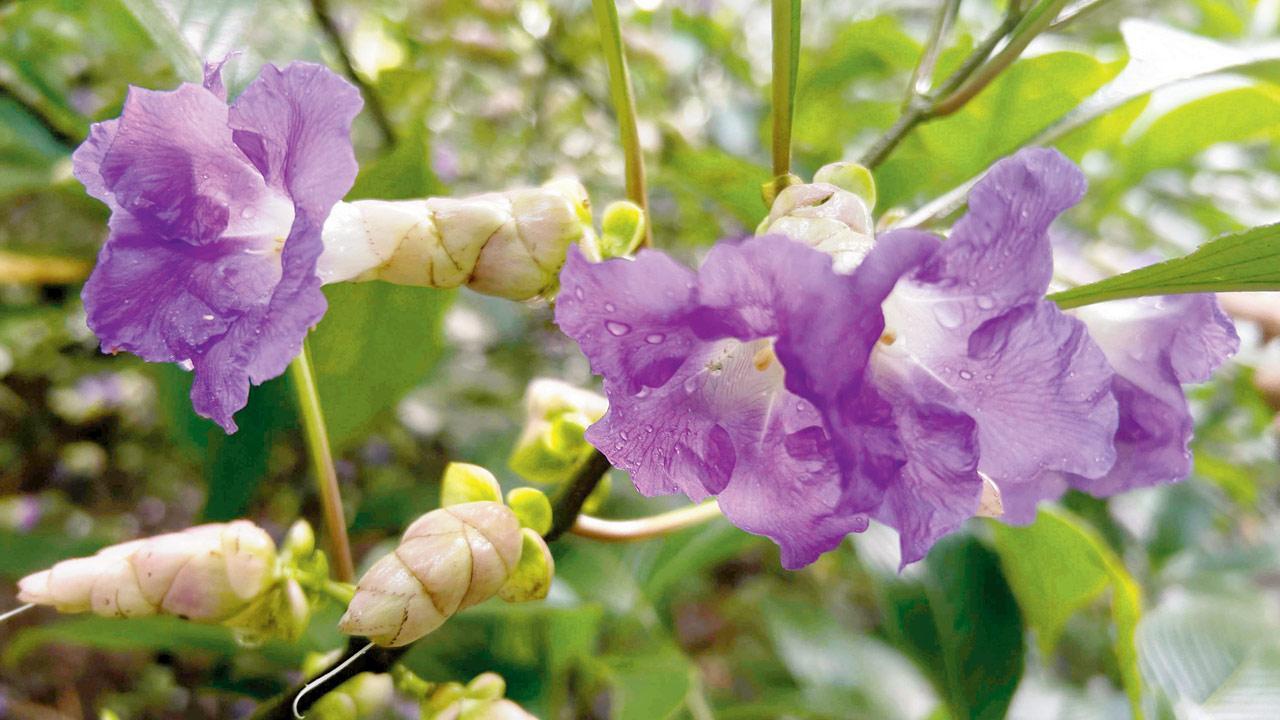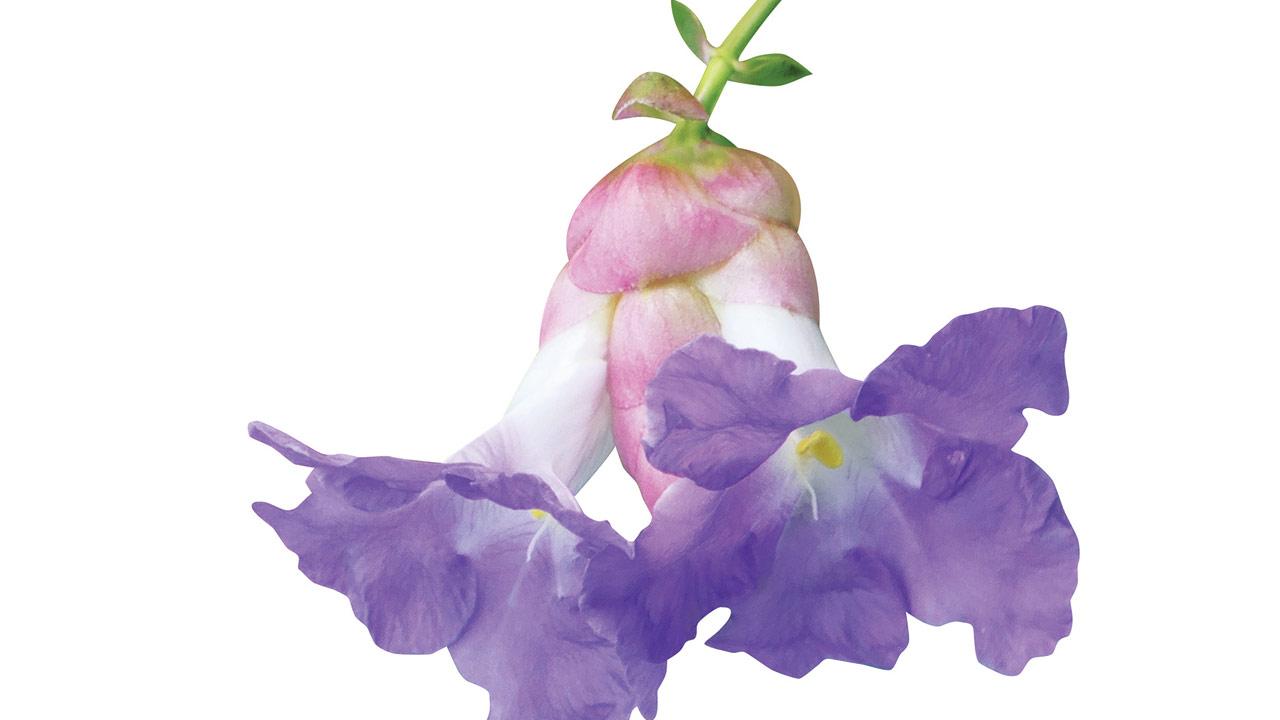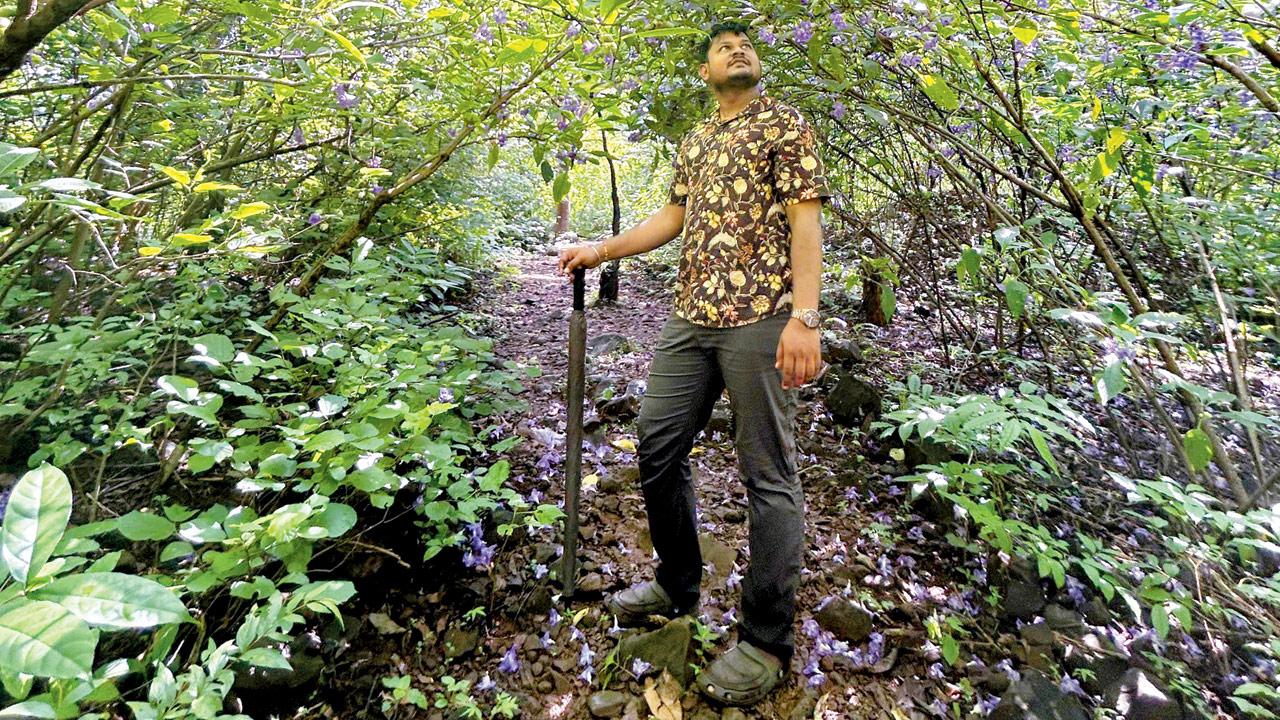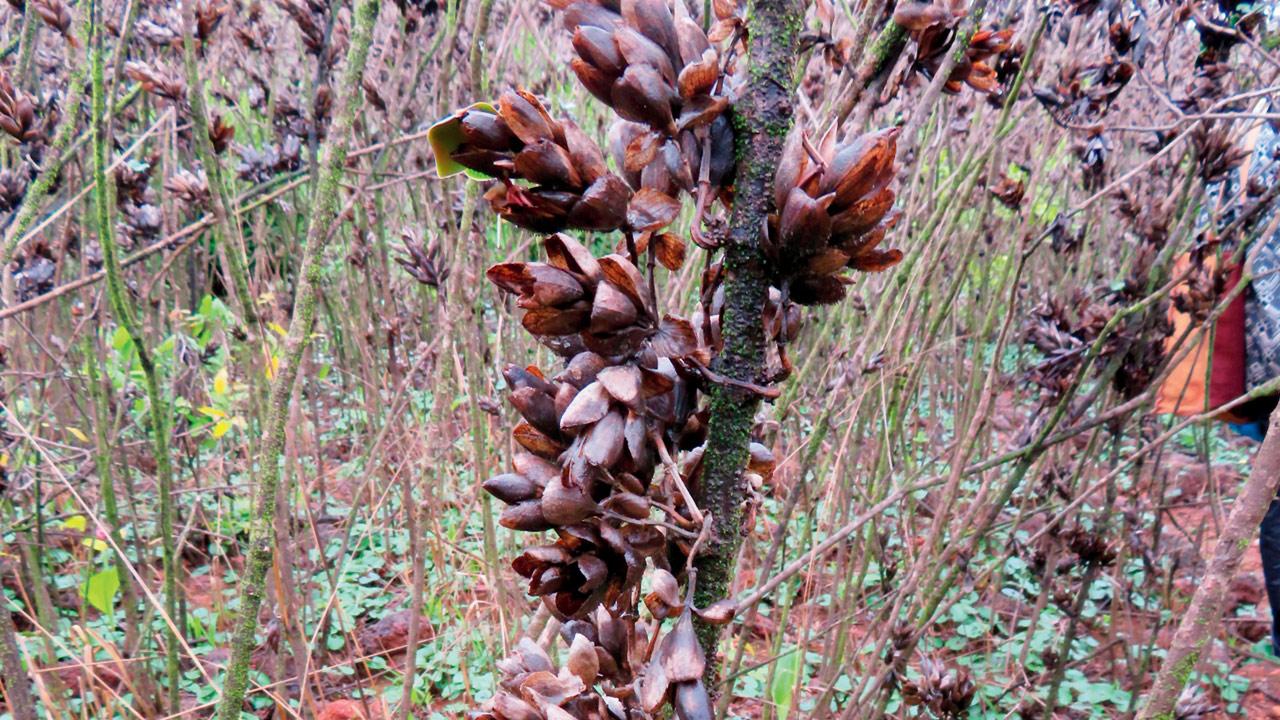A guided trail this weekend will explore karvi flower patches in Goregaon that have made a return after their eight year-life cycle

Karvi flowers are endemic to the Western Ghats. Pic Courtesy/Shailesh Gupta
Forests come alive in the monsoon. Every seven to eight years, in the Western Ghats, a similar phenomenon emerges with the karvi flower. Scientifically named strobilanthes callosa, they are currently in full bloom across this mountain range. Fortunately for Mumbaikars, these plants also have homes across several green lungs.

This weekend, the Mumbai Musafir community will host a guided karvi trail in one such popular spot near the Film City, inside the Conservation Education Centre of the Bombay Natural History Society. “Karvi flowers are endemic to the Western Ghats,” explains Shailesh Gupta, a professor at Bhavan’s College (Andheri), and senior naturalist at Mumbai Musafir.

Shailesh Gupta at the karvi flower patch in CEC BNHS
“The last bloom was in 2016, and the flowers have returned for another season now in 2024. After the mass flowering every seventh or eighth year, the shrubs dry out and die,” adds founder Preeti Bhardwaj. While these flowers have great ecological value by attracting pollinators, they have an equally important cultural value. “When the plant flowers, it gives us what is one of the costliest honey varieties called karvi honey.

The dry plant stores seeds in pods. Pic Courtesy/Prabha Pillai
And when it dries out, several Adivasi communities in Maharashtra, Gujarat and some parts of Madhya Pradesh make huts of the dry plant’s stalks,” Gupta reveals. This trail, he adds, will discover many such fun facts about these flowers that paint the Western Ghats lavender. “We will further talk about the various species of flora and fauna that come to life in monsoon,” Bhardwaj adds.
On Tomorrow and September 28; 7.45 am to 10 am
At BNHS CEC, near Film City, Goregaon West.
Log on to @mumbai_musafir Message 9833173564
Cost Rs 1,150
Cool karvi facts

>> These plants grow gregariously in continuous patches
>> They usually grow on slopes of mountains or forest floors
>> The flowers attract many pollinators, especially honey bees and butterflies
>> These plants are not only endemic themselves, but as they grow in masses, they also protect other endemic species
>> They usually grow up to 6 ft in height and above
>> Karvi honey tastes a tad bitter, and while it hasn’t been proven scientifically, many believe it to have medicinal values
>> They flower during the months of September and October. The capsule on plants, which carry seeds in them, burst next year in June after rain begins, resulting in a new population of Karvi
>> Their seeds are encapsulated in pods. When they imbibe rain water, these burst open with a pop. It is not a loud sound, but since these plants are gregarious and grow in masses, they make a fascinating feeble sound when seeds are released together. That’s how new colonies of karvi saplings appear
>> Avoid rubbing the leaves of these plants in between your fingers. They have trichomes or hair-like structures that may be allergic. The leaves release a scent that could make one feel nauseous after the nature trail
>> Look out for leeches during monsoon, and ticks in December
By Prabha Pillai, botanist
 Subscribe today by clicking the link and stay updated with the latest news!" Click here!
Subscribe today by clicking the link and stay updated with the latest news!" Click here!










